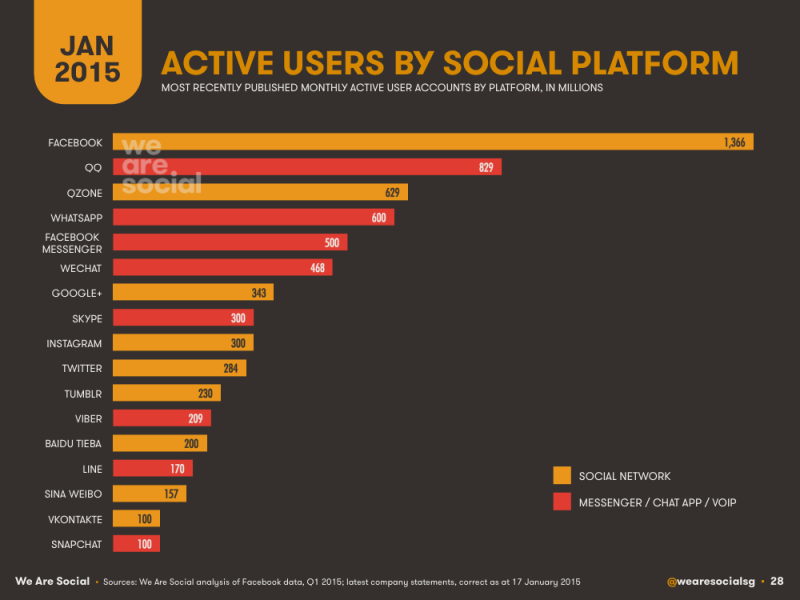Four Of The Top Six Social Networks Are Actually Chat Apps
- Fahad H

- Jan 22, 2015
- 2 min read

Social media networks are still growing rapidly worldwide, but much of that growth is being fueled by messaging apps instead of the usual suspects.
In fact, according to We Are Social’s Digital, Social and Mobile in 2015 report, four of the world’s six largest global social platforms are messaging apps. Facebook still leads with 1.36 billion monthly active users, but QQ (829 million), Facebook-owned WhatsApp (600 million, recently updated to 700 million), Facebook Messenger (500 million) and WeChat (468 million) all rank ahead of any other social network.
Here’s the chart (which is based on stats publicly reported by the companies):

China with its huge market of 1.3 billion people and 642 million active internet users obviously has its thumb on the scale in these results. China-based Tencent owns two of the chat apps (QQ and We Chat) and the second-ranked social network QZone with 629 million users.
The picture looks different in the United States, at least based on self-reported data. Using a Q4 2014 survey by Global Web Index, We Are Social’s chart below shows only Facebook Messenger in the top 7 for the U.S.:

The global trend, as well as messaging apps’ youth-oriented demographics, makes this an important part of the social industry to keep tabs on. Many of the services are working on more ways for marketers to reach consumers using the services.
Snapchat, for instance, has been experimenting with ads, although their reported $750,000 daily minimum cost and lack of tracking analytics has caused some head scratching. SnapChat is also reportedly planning to launch a new Discovery feature this month, giving content creators the means to publish ad-supported video on the network.
WeChat gives users the ability to shop, hail taxis and send money. And Kik (which recently commissioned a study that showed users who have both Snapchat and Kik installed on their phones use Kik 35 minutes daily compared to 21 for Snapchat) gives brands the ability to send sponsored texts to people.
There’s a wealth of information in We Are Social’s report, which you can view here.




Comments